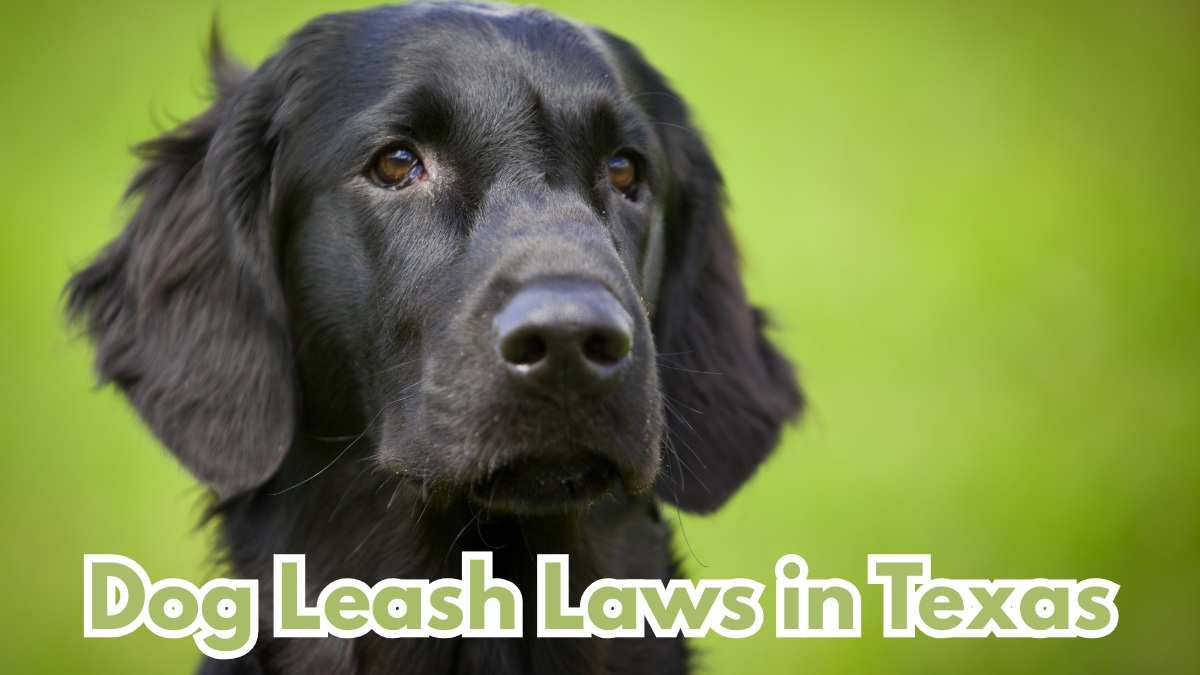Texas is home to millions of dog lovers, but when it comes to public safety, the law makes one thing clear—pet owners are expected to keep their dogs under control. While Texas doesn’t enforce a statewide leash law, most cities and counties have local ordinances requiring dogs to be leashed in public spaces.
Failing to leash your dog—or ignoring local leash laws—can lead to serious consequences, including fines, civil lawsuits, and in some cases, even criminal charges. If your dog bites someone or causes an accident, the legal and financial impact could be significant. Here’s what dog owners need to know to stay compliant and avoid liability in Texas.
What You Need to Know About Texas Dog Leash Laws
Texas doesn’t have a statewide leash law, but many cities—like Houston—enforce local ordinances requiring dog owners to keep their pets leashed, muzzled, or otherwise restrained in public. These laws also ban allowing dogs to “run at large.” If an owner or handler breaks one of these local rules and someone gets hurt as a result, the victim may have grounds to file a dog bite lawsuit.
In cities like Houston, Dallas, Austin, and San Antonio, leash laws typically require that dogs be:
- Leashed in all public areas
- Confined to a secure yard or enclosure when at home
- Under effective control, either by leash or reliable verbal commands (in very limited circumstances)
For example, in Houston, dogs must be on a leash anytime they’re off their owner’s property—unless they’re in a designated off-leash zone, such as a dog park. Similar rules apply in most surrounding suburbs and neighborhoods.
Animal control officers or local police typically enforce these ordinances. The goal is clear: prevent avoidable harm like dog bites, traffic accidents, and property damage.
What Happens If You Violate a Leash Law in Texas?
Not leashing your dog is more than just a minor oversight—it can lead to serious legal consequences.
Violating leash laws can result in:
- Fines ranging from $100 to over $500, particularly for repeat offenses or cases involving injury
- Civil liability if your dog injures someone, another animal, or damages property
- Criminal charges in more severe cases, such as when the dog has a known history of aggression or has been declared dangerous
Texas follows a modified version of the “One Bite Rule.” Contrary to its name, this rule doesn’t give dogs a free pass for the first bite. Instead, it holds owners liable if they knew—or should have known—that their dog had dangerous tendencies. That knowledge can stem from a prior bite, aggressive behavior, or even certain breed traits.
In short, failing to leash your dog can open the door to lawsuits and penalties, especially if someone is injured as a result. Keeping your pet restrained isn’t just about following the law—it’s about protecting your dog, your neighbors, and yourself.
Do Service Animals Have to Be Leashed in Texas?
Yes, in most cases. Texas law and federal guidelines under the Americans with Disabilities Act (ADA) require that service animals be leashed, harnessed, or tethered in public, unless doing so interferes with the animal’s trained tasks or the handler’s disability prevents it.
In those rare cases, handlers must still maintain effective control of the animal through voice, signal, or other methods.
Even service animals aren’t exempt from liability. If a service dog becomes aggressive or bites someone, the handler can be held civilly liable—just like any other dog owner. Businesses have a right to protect their customers and are legally allowed to ask two questions:
- Is the dog a service animal required because of a disability?
- What work or task has the dog been trained to perform?
They cannot ask for documentation or inquire further into the person’s condition. However, if a service animal acts aggressively, it can legally be removed from the premises in the interest of public safety.
Can I Leave My Dog Tied Up Outside in Texas?
Texas law also regulates tethering, or leaving your dog tied up outside—especially when the dog is unsupervised.
Under Texas Health and Safety Code § 821.102, it is illegal to:
- Use a tether shorter than 10 feet or five times the dog’s length
- Use heavy or restrictive chains
- Leave a dog outside during unsafe weather (extreme heat, storms, cold)
- Fail to provide proper shelter, clean water, or shade
- Leave a tethered dog unattended, putting both the dog and the public at risk
The first offense is typically a Class C misdemeanor, but repeat violations can escalate to a Class B misdemeanor.
If an unattended, tethered dog bites someone, the owner may face civil lawsuits and possibly criminal charges, especially if the dog had a history of aggression. In these cases, Texas’s “one bite rule” may be used to establish legal liability.
How to File a Dog Bite Lawsuit in Texas
If you’ve been bitten by a dog in Houston or elsewhere in Texas, you may have the right to file a personal injury claim—especially if the owner failed to leash or properly control their pet.
To bring a successful case, you typically need to prove:
- The dog’s owner was negligent
- The dog had a known history of aggression
- The incident involved a leash or tethering violation
- You suffered injuries and damages as a result
An experienced personal injury attorney can help by gathering police reports, medical documentation, and witness statements to build your case.




